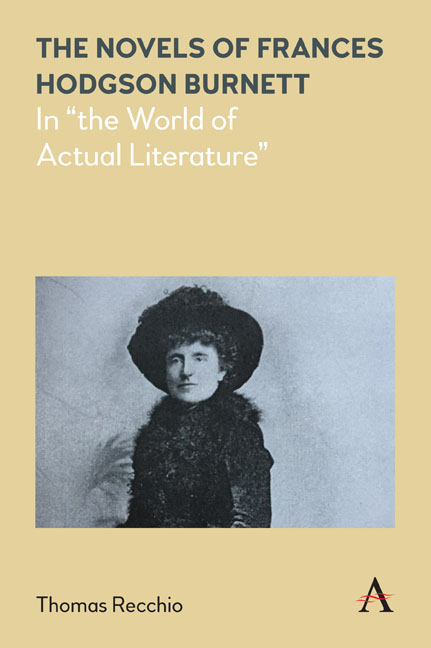Book contents
- Frontmatter
- Contents
- Acknowledgments
- Introduction
- Chapter One Learning from Elizabeth Gaskell
- Chapter Two Writing as an American: The Portrait of a Washington Lady
- Chapter Three Historical Dreamscapes and the Vicissitudes of Class: From A Lady of Quality to The Methods of Lady Walderhurst
- Chapter Four Transatlantic Alliances in The Shuttle and T. Tembarom
- Chapter Five After the Great War: Emerging from the Wasteland in The Head of the House of Coombe and Robin
- Bibliography
- Index
Chapter Two - Writing as an American: The Portrait of a Washington Lady
Published online by Cambridge University Press: 24 June 2020
- Frontmatter
- Contents
- Acknowledgments
- Introduction
- Chapter One Learning from Elizabeth Gaskell
- Chapter Two Writing as an American: The Portrait of a Washington Lady
- Chapter Three Historical Dreamscapes and the Vicissitudes of Class: From A Lady of Quality to The Methods of Lady Walderhurst
- Chapter Four Transatlantic Alliances in The Shuttle and T. Tembarom
- Chapter Five After the Great War: Emerging from the Wasteland in The Head of the House of Coombe and Robin
- Bibliography
- Index
Summary
The three novel sequence established by Gaskell and echoed by Burnett sketched out in the last chapter has an echo in a parallel disruption of that sequence: Gaskell interrupted the serial numbers of Cranford in order to write her fallen woman novel Ruth, and between Haworth's and A Fair Barbarian Burnett wrote “Louisiana, her first American novel” (Thwaite 65). But unlike the three novel sequence, there is little material connection between Ruth and Louisiana beyond the happenstance fact that the title of both novels is the name of the main female character and that the concealment of their family names (and thus identities) drives what there is of a plot since in both novels the revelation of the woman's true identity constitutes the crisis. The character Louisiana is, like Ruth, young and naïve, but she, unlike Ruth, is not an orphan, nor is she in her innocence deceived into a fallen state for which she must atone by her own self- sacrificing death. Rather Louisiana, a country girl from the hills of North Carolina, allows herself to be misrepresented by a New York female acquaintance whom she meets at a resort within a couple of hours travel from her home. Struck by the freshness and originality of Louisiana's beauty, the New Yorker, Miss Olivia Ferrol, sets out to enhance Louisiana's appearance by substituting her country dress with a few of Miss Ferrol's own, all high fashion designs from New York. Miss Ferrol's brother Laurence, an aspiring novelist, is soon to follow his sister to the resort. Louisiana agrees to an experiment proposed by Miss Ferrol not to reveal her antecedents to the brother once he arrives, for, as the British periodical Examiner (May 22, 1880) put it in its review of the novel, “She [Miss Ferrol] and her brother are both fond of studying ‘new types’ of humanity” (644). In that way Louisiana becomes an object of analytical interest for the two New Yorkers, a situation with a powerful though implicit harshness.
The following scene captures that harshness.
One moonlight night, as they [Louisiana, Laurence, and Olivia] sat on an upper gallery, he began to speak of the novelty of the aspect of the country as it presented itself to an outsider who saw it for the first time.
- Type
- Chapter
- Information
- The Novels of Frances Hodgson BurnettIn "the World of Actual Literature", pp. 53 - 92Publisher: Anthem PressPrint publication year: 2020

